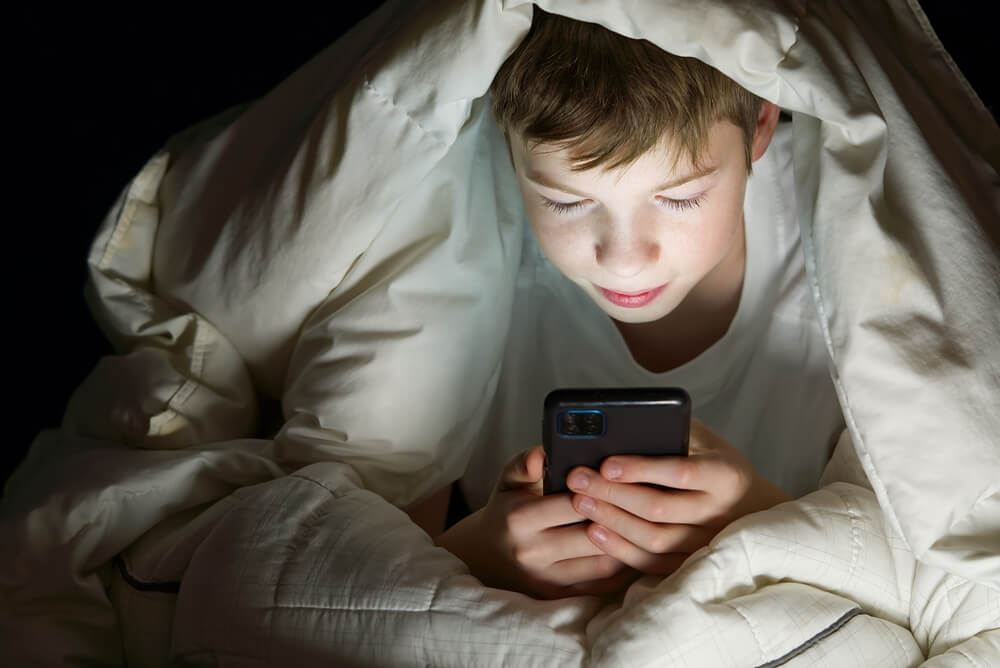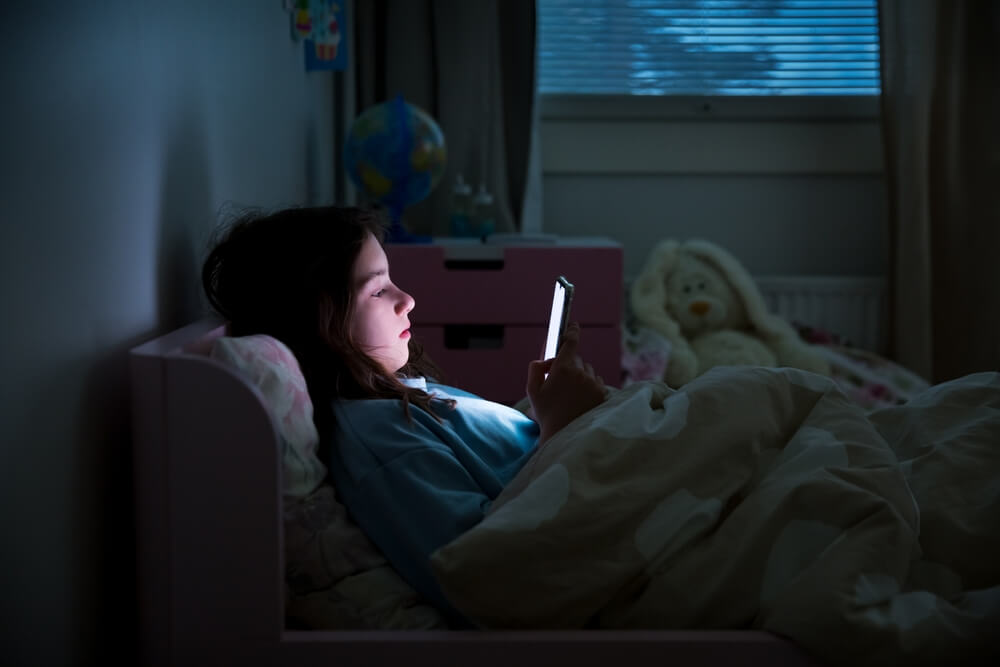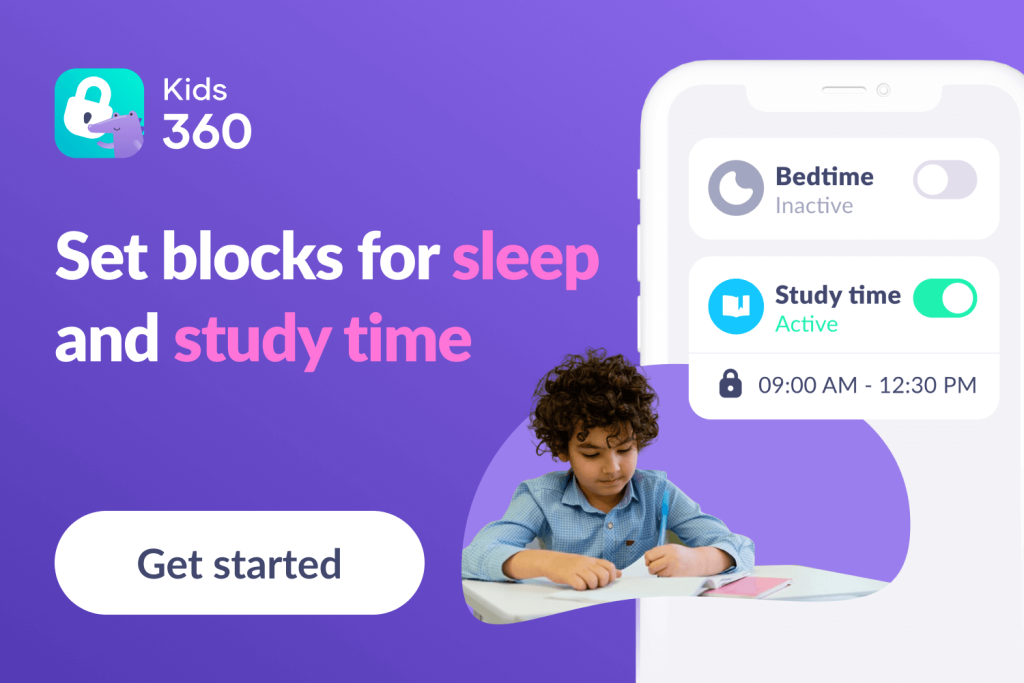What Does It Mean to Be Chronically Online? Signs and Solutions for Parents

We live in a technological world, with a lot of benefits, but also new challenges for the peoples of the world to overcome. One of the biggest problems is the prospect of people being “chronically online.” Read on to discover the chronically online meaning, signs, causes, and some tips and tricks to avoid you or your family falling victim to this issue.
Contents:
- What Does “Chronically Online” Mean?
- Signs and Symptoms of a Chronically Online Person
- How Does Being Chronically Online Affect Mental Health?
- How Not To Be Chronically Online? How To Help Reduce Time Spent Online
- FAQs
What Does “Chronically Online” Mean?

misfire_studio/Shutterstock.com
We’ll kick off with a quick definition. To be “chronically online” is just what it sounds like—this term refers to people who spend a lot of their time on the internet, people who are obsessed with online culture, can’t go more than a few hours without checking their social media profiles or email accounts, and feel that their lives are deeply connected to the internet.
It’s a phrase that’s popular among young people, like Gen Z individuals, but it’s a condition that can affect folks of all ages. Anyone can be chronically online and fall victim to the trap of the internet, getting addicted to it and spending too much of their time online, so that it eventually affects their personality, their relationships, and even their career.
Some Examples and Stats
We live in a world where over 5.4 billion people have internet access, and around 30% of U.S. adults admit to being more or less “constantly online.” Among younger generations, the stats are even more damning, with half of Gen Z admitting to having a “double life” online and many claiming to prefer their online or virtual lives to their real ones.
In a world where so many people own smartphones and internet access is so widespread and convenient, it’s easy for people to end up being chronically online. They can get addicted to social media apps, like Instagram and TikTok, or spend more time speaking with friends online than they do in the real world.
Who Exactly Is Using This Phrase?

DimaBerlin/Shutterstock.com
It’s mainly younger people, including younger millennials and Gen Z individuals, who use the term “chronically online” to describe one another. However, that’s not to say that young people are the only ones who can be chronically online, or that they’re the only ones who use this phrase. More and more older people are becoming aware of the issue, too.
Is Gen Z Chronically Online? The Age of the Chronically Online
It’s unfair to generalize an entire generation, and we can’t say that all Gen Z individuals are chronically online. However, there are tendencies and statistics to show that a lot of Gen Z people do spend more time online than their predecessors and that the “chronically online issue” has a bigger chance of affecting people who fall into the Gen Z age bracket.
This is explainable by the fact that Gen Z is the first generation to truly grow up with internet technology for their entire lives. Gen Z is generally defined as being from the late 90s to the early 2010s. This is when the internet, home computers, and smartphones really started to take off, and Gen Z individuals have grown up knowing and living with this technology.
As such, many of them are so used to it that they can easily spend several hours a day online, browsing social media, watching videos on YouTube, or using the internet in other ways. This puts a lot of them into the “chronically online” category. But, as touched on earlier, this isn’t true for every single Gen Z person and some are much more moderate in their internet usage.
Signs and Symptoms of a Chronically Online Person

InFocus.ee/Shutterstock.com
Next, let’s take a look at how you can spot a chronically online person, listing some of the signs and symptoms that tend to appear in individuals of varying ages.
In Kids and Teens
- Speaking in Online Terms: Chronically online youth often incorporate slang and memes into their everyday conversations, sometimes making it difficult for others to understand them. Their speech might be peppered with internet jargon, which reflects their deep immersion in online culture.
- Obsessed with Internet Celebrities: Many Gen Z and younger millennials will also show a lot of passion and interest in so-called online celebrities, such as famous YouTubers or Twitch streamers and influencers.
- Always On Their Phones: Many young people who are chronically online tend to be addicted to their phones and never want to be without them, even in situations like classrooms or at the dinner table.
- Compulsive Checking of Notifications: Many kids and teens who are chronically online find it difficult to stop checking their devices for notifications. This constant need for updates from social media or messaging apps can lead to excessive time spent online and a decline in attention to real-life activities.
- Lots of Time Indoors: Young people who are chronically online will often eschew outdoor activities like walks in nature in favor of spending time inside, where they can connect to the net.
In Adults
- Compulsive Use of Devices: Adults who are chronically online might exhibit a compulsive need to check their phones or computers, even during important tasks or social interactions. This behavior can lead to a significant decline in productivity and attention to personal relationships.
- Fatigue and Tiredness: Since too much screen time makes it harder to sleep, a lot of chronically online adults tend to show signs of fatigue and general tiredness.
- Work Issues: They may struggle at work with productivity or concentration if they’re always thinking about online matters.
- Relationship Issues: Adults may also suffer in their relationships if they spend too much time on the internet.
- Inability to Spend Time Away from Internet Devices: Like teens, they’ll find it hard to spend any length of time away from their computer or phones.
How Does Being Chronically Online Affect Mental Health?

Photographee.eu/Shutterstock.com
Next, let’s explore some of the negative consequences of this condition.
For Kids and Teens
- Unrealistic Expectations: Kids who spend too much time online might start to build up certain expectations of how others should act that don’t match real-life conditions.
- Confusion Between Reality and the Virtual World: They may start to confuse the real and virtual worlds, not understanding or living by real-world expectations and rules.
- Social Isolation and Anxiety: While being connected online can feel like socializing, it often lacks the depth of real-world interactions. Teens who are chronically online may experience social trouble when trying to connect with peers offline. This can lead to significant feelings of isolation, as well as increased social anxiety, making it hard for them to form lasting friendships.
- Compulsive Online Behavior: Young people may develop compulsive behaviors related to their online activities, such as obsessively checking their phone, scrolling through social media, or playing online games. This compulsiveness can make it difficult for them to engage in other activities, such as studying or spending time with family.
For Adults
- Decreased Productivity: Adults may struggle to concentrate or focus on tasks or organize their lives because they’re too obsessed with the internet.
- Inadequacy: Those who spend lots of time online may start comparing themselves and their lives to others and feel senses of inadequacy.
- Depression: Too much online time can ultimately even lead to feelings of anxiety, depression, and more.
How Not To Be Chronically Online? How To Help Reduce Time Spent Online

Aleksandra Suzi/Shutterstock.com
Finally, let’s talk about how to avoid this issue.
Tips for Adults
- Set Clear Boundaries: Establish specific times of the day when you’ll use the internet and stick to them. This might mean no phones during meals or avoiding screens an hour before bed. Setting these boundaries can help you regain control over your time.
- Use Tools to Limit Screen Time: Consider using browser extensions or apps that help you track and limit your time online. These tools can block distracting websites or send reminders when you’ve been online for too long, helping you avoid excessive screen time.
- Turn Off Notifications: Notifications can be a significant distraction, constantly pulling you back online. Disable non-essential alerts on your devices to reduce the urge to check your phone or computer frequently.
- Find Offline Hobbies: Cultivate hobbies that don’t involve screens, such as reading physical books, exercising, cooking, or spending time in nature. These activities can provide a fulfilling alternative to being online.
- Practice Mindfulness: Engage in mindfulness or meditation practices to help you stay present in the moment. Being mindful can reduce the compulsive need to check your phone and help you appreciate offline experiences.
- Socialize in Person: Make an effort to meet friends and family in person rather than relying on digital communication. Face-to-face interactions are more meaningful and can help you feel more connected and less reliant on online socializing.
Tips for Parents
- Educate About Online Dangers: Talk to your children about the risks of spending too much time online, including the impact on their mental health and physical well-being. Help them understand the importance of balance.
- Encourage Offline Activities: Introduce your kids to activities that don’t involve screens, such as sports, arts and crafts, or reading physical books. Encourage them to play outside, join clubs, or engage in creative projects that fuel their imagination without relying on the internet.
- Set Screen Time Limits: Use parental control tools like the Kids360 app to set and enforce limits on your child’s screen time. This helps ensure that they aren’t spending excessive time online, and it promotes healthier habits.
- Create Tech-Free Zones and Times: Designate certain areas of your home, such as the dining room or bedrooms, as tech-free zones. Also, establish tech-free times, like during meals or before bed, to encourage your family to engage with each other without distractions.
- Lead by Example: Model healthy online behavior by practicing what you preach. If your children see you managing your screen time effectively, they are more likely to follow suit.
- Stay Involved: Keep an eye on your child’s online activities, but also be present in their offline life. Participate in their hobbies, spend quality time together, and show interest in their day-to-day experiences to reinforce the value of real-world connections.
Kids360: A Solution for Managing Screen Time
To effectively manage screen time and reduce the risk of becoming chronically online, Kids360 offers an ideal solution for parents. This app goes beyond standard parental controls, providing a balanced approach that not only limits screen usage but also encourages children to engage in meaningful activities.
How Kids360 features:
- Screen Time Management: Set schedules for device and app usage.
- Activity Monitoring: Track time spent on apps and receive alerts.
- Reward System: Children earn extra screen time by completing tasks or physical activities.
- Safe Internet Access: Block inappropriate websites and content.
- Geolocation: Always know your child’s location.
- Simple Setup: Connect your child’s device in just 5 minutes.
Join millions of parents using Kids360 to manage screen time and promote healthy online habits. Try it for free today!
Avoid Falling Victim to the Chronically Online Condition

Ground Picture/Shutterstock.com
As you can see, being chronically online is quite a serious issue and it’s affecting more and more people in today’s world, which is increasingly reliant on modern technology and online services. Young people, in particular, are at heightened risk of being chronically online, and it’s important for parents to do their best to protect them.
Share this guide around so other parents and people can learn the dangers of too much screen time and find ways to stay safe!
FAQs
How Do I Know if I Am Chronically Online?
You can effectively self-diagnose yourself as a chronically online person if you spend many hours online each day, can’t go a few hours without checking your phone, computer, email, or social media channels, and neglect your real-life responsibilities for online interactions and activities.
What Makes You Chronically Online?
Someone is chronically online if they spend an inordinate amount of time online, to the extent that it has impacts on their real-life connections, relationships, sense of reality, and even their personality. It’s a type of addictive behavior where people get gradually addicted to being online and can’t go long between internet sessions.
How Do Chronically Online People Act?
Chronically online people often show a recurring or even constant need to be online. They won’t be able to go long without getting online somehow, spend much of their free time on the internet, and don’t like being in situations where they’re cut off from Wi-Fi or internet access, like on flights or in remote places.
Is Terminally Online the Same as Chronically Online?
Yes, these two phrases are interchangeable and mean the same thing. They both refer to someone who is heavily invested in the internet and online culture and who spends a lot of their time on the internet. Another possible term you may hear is “extremely online,” which also has the same definition.
The picture on the front page: Drazen Zigic/Shutterstock.com
Проверьте электронный ящик




















